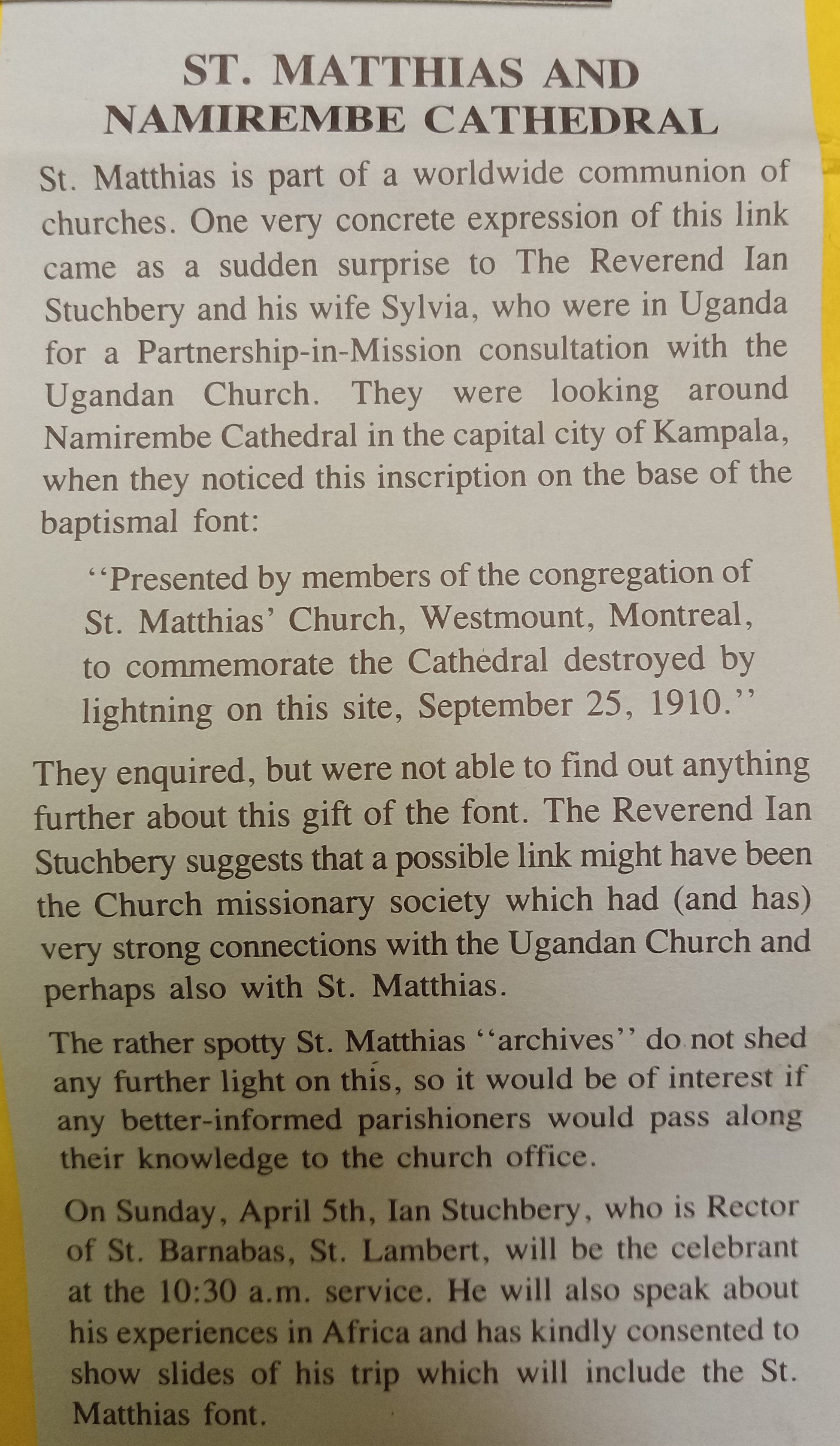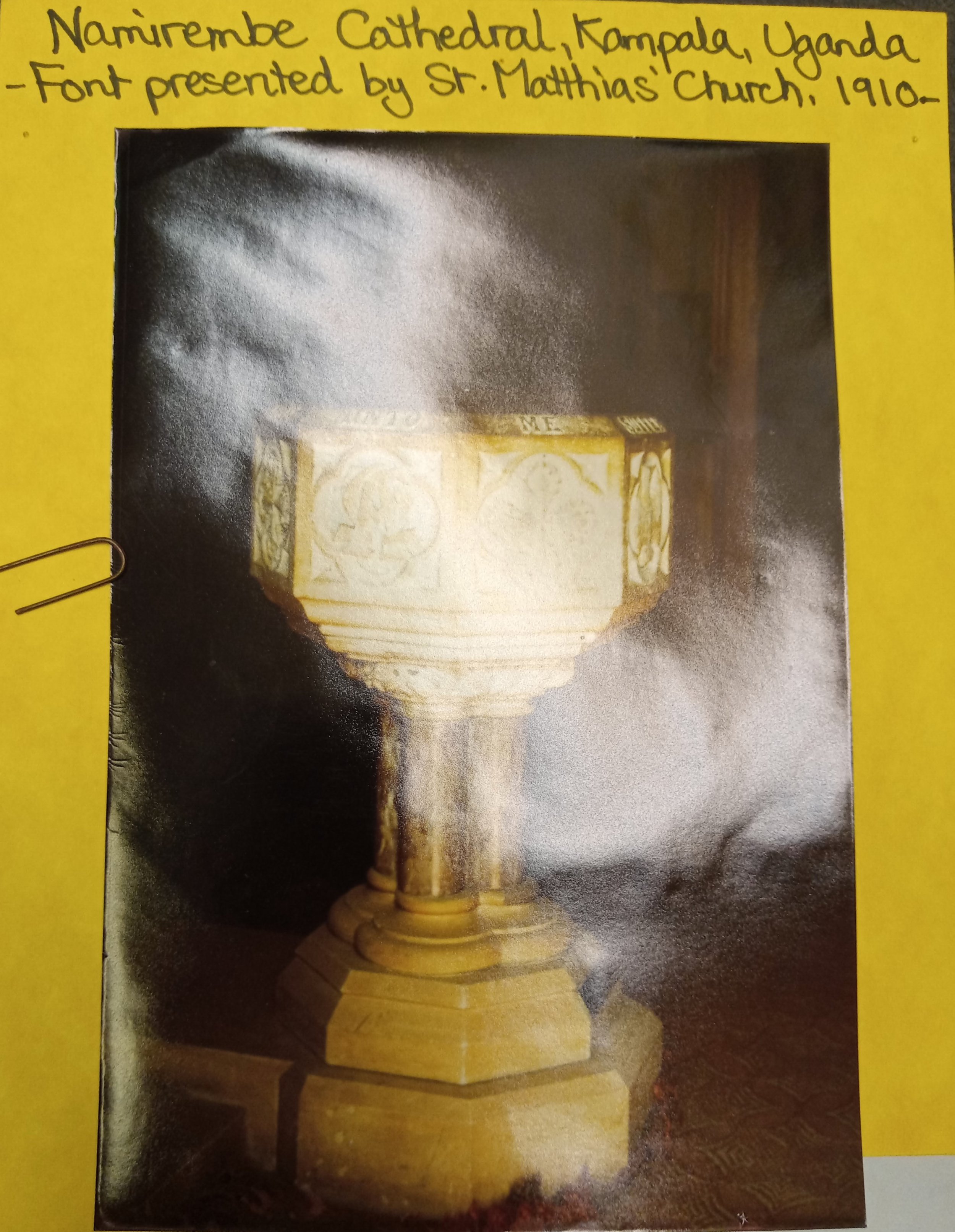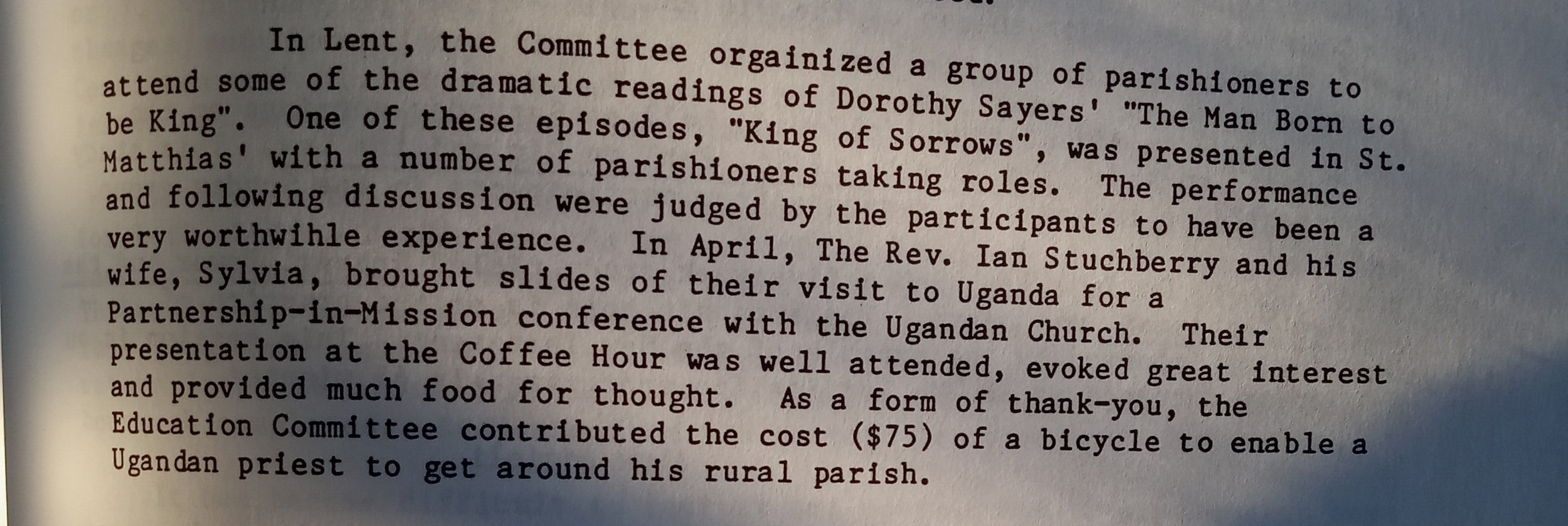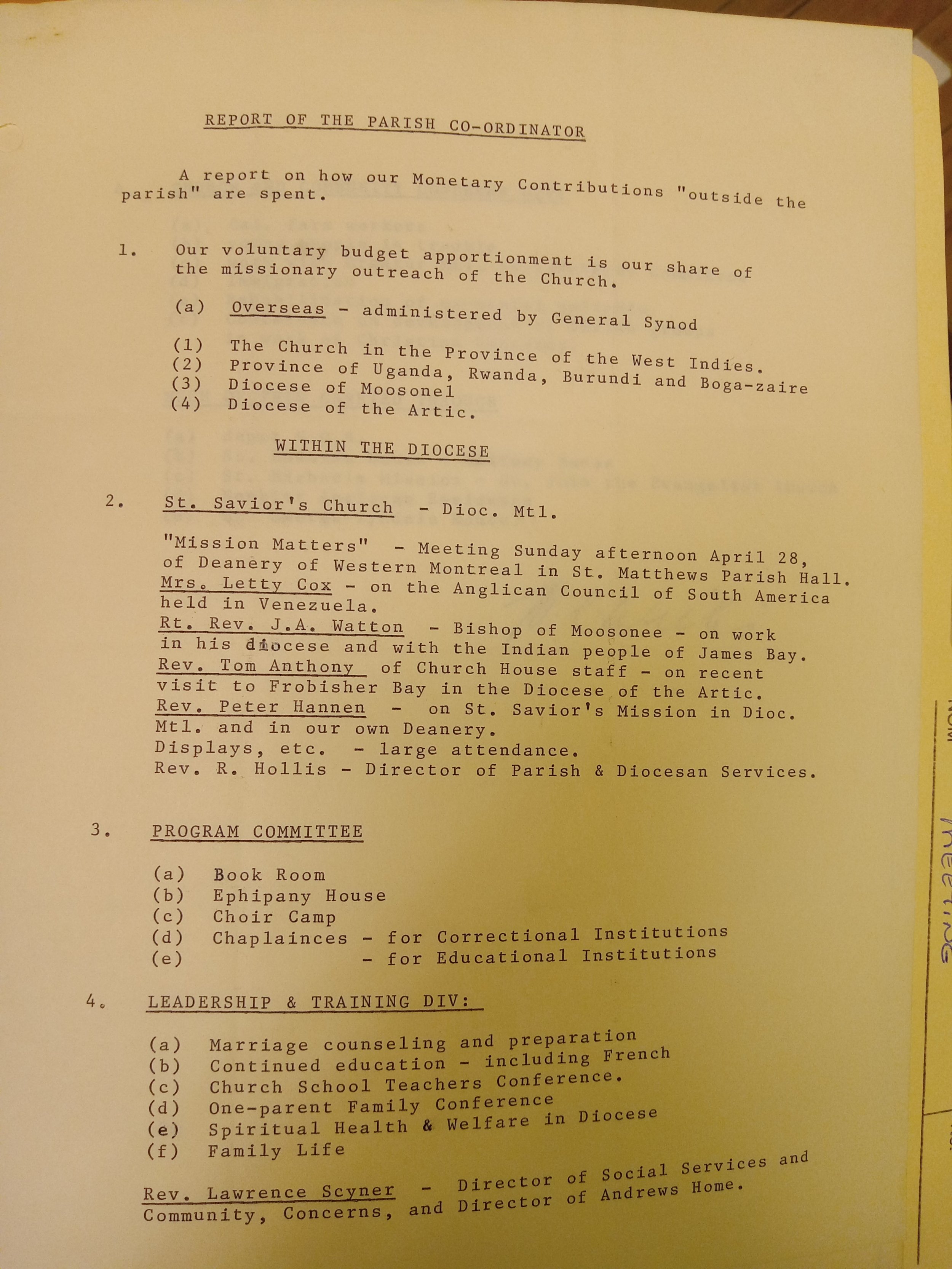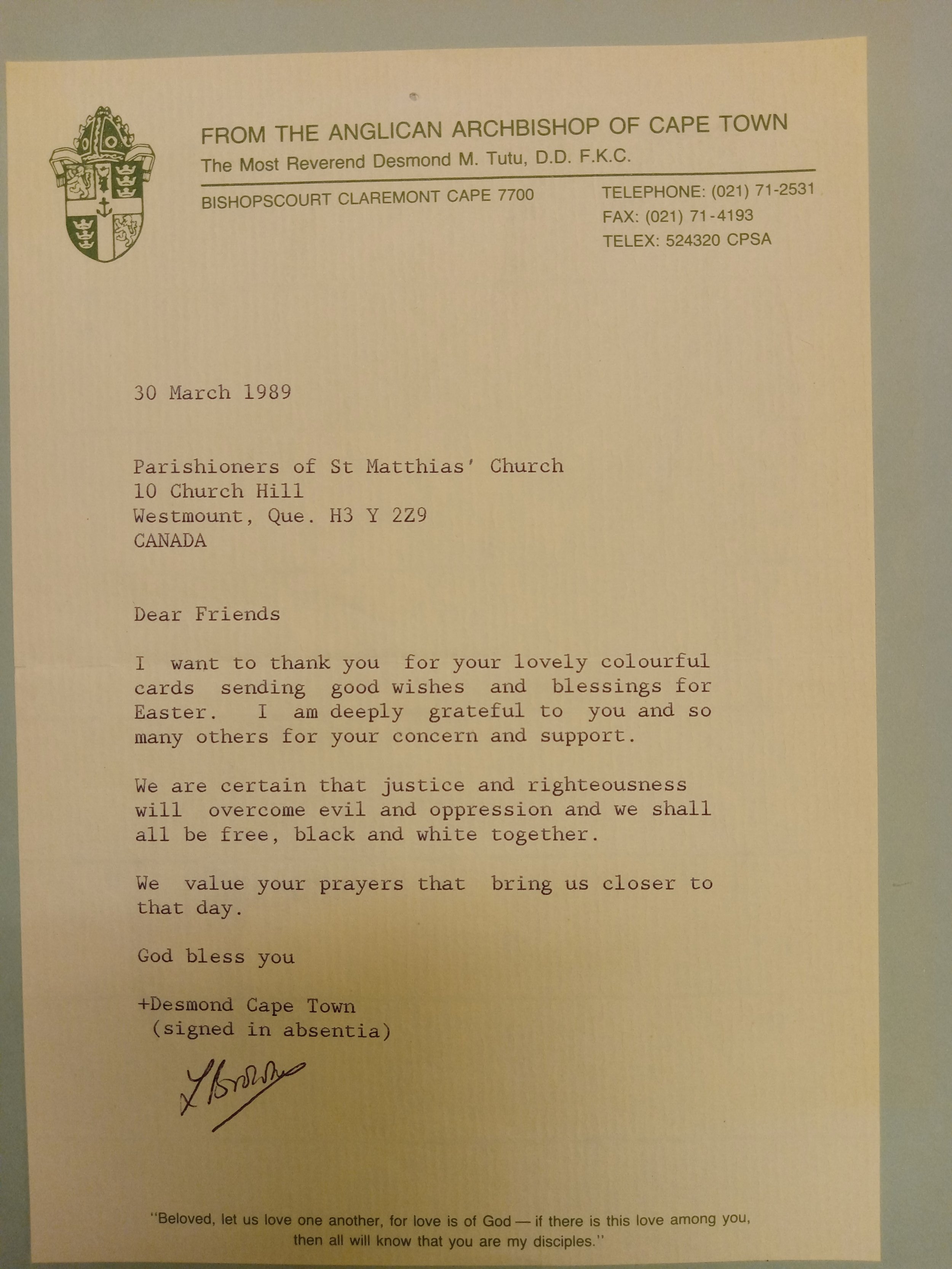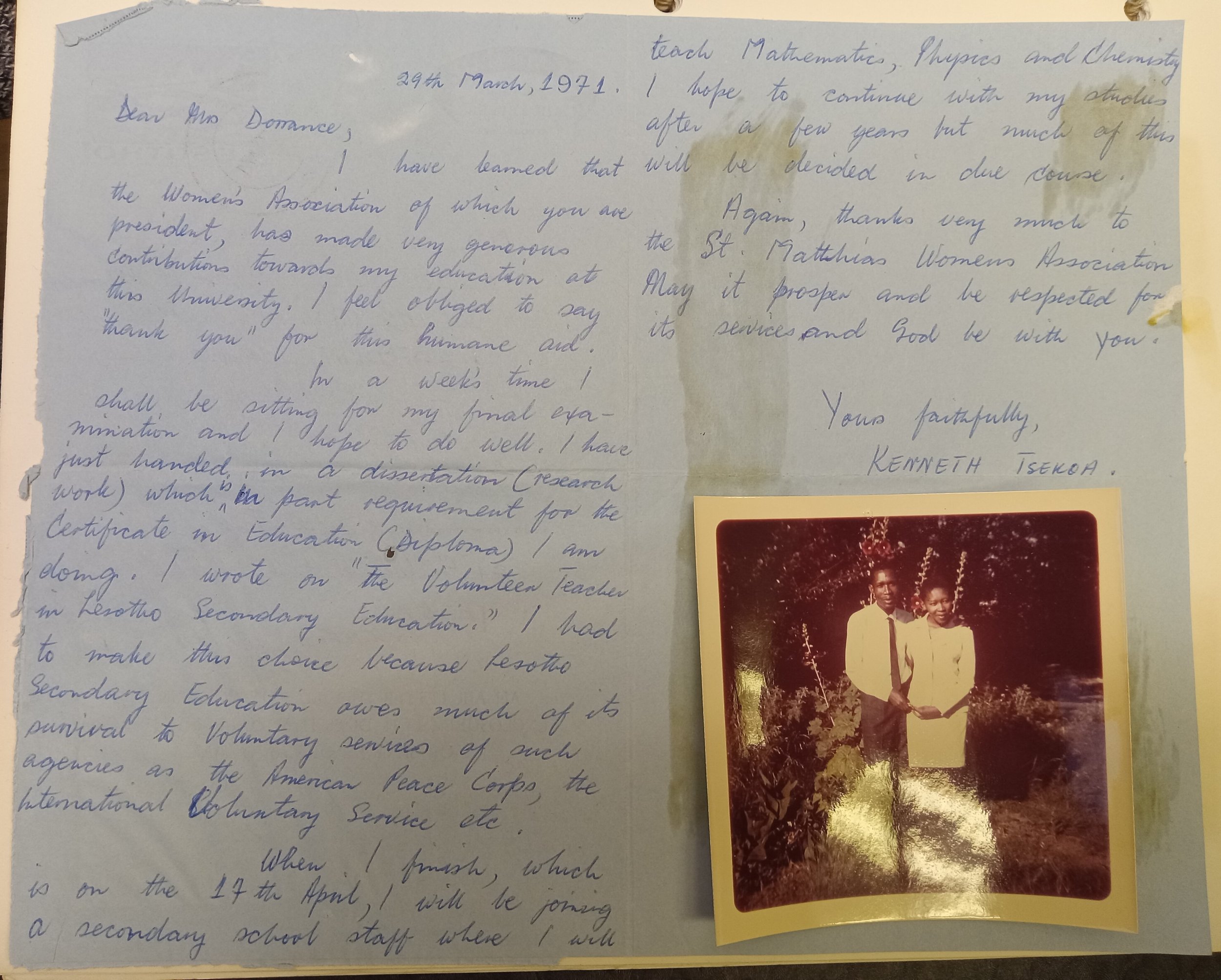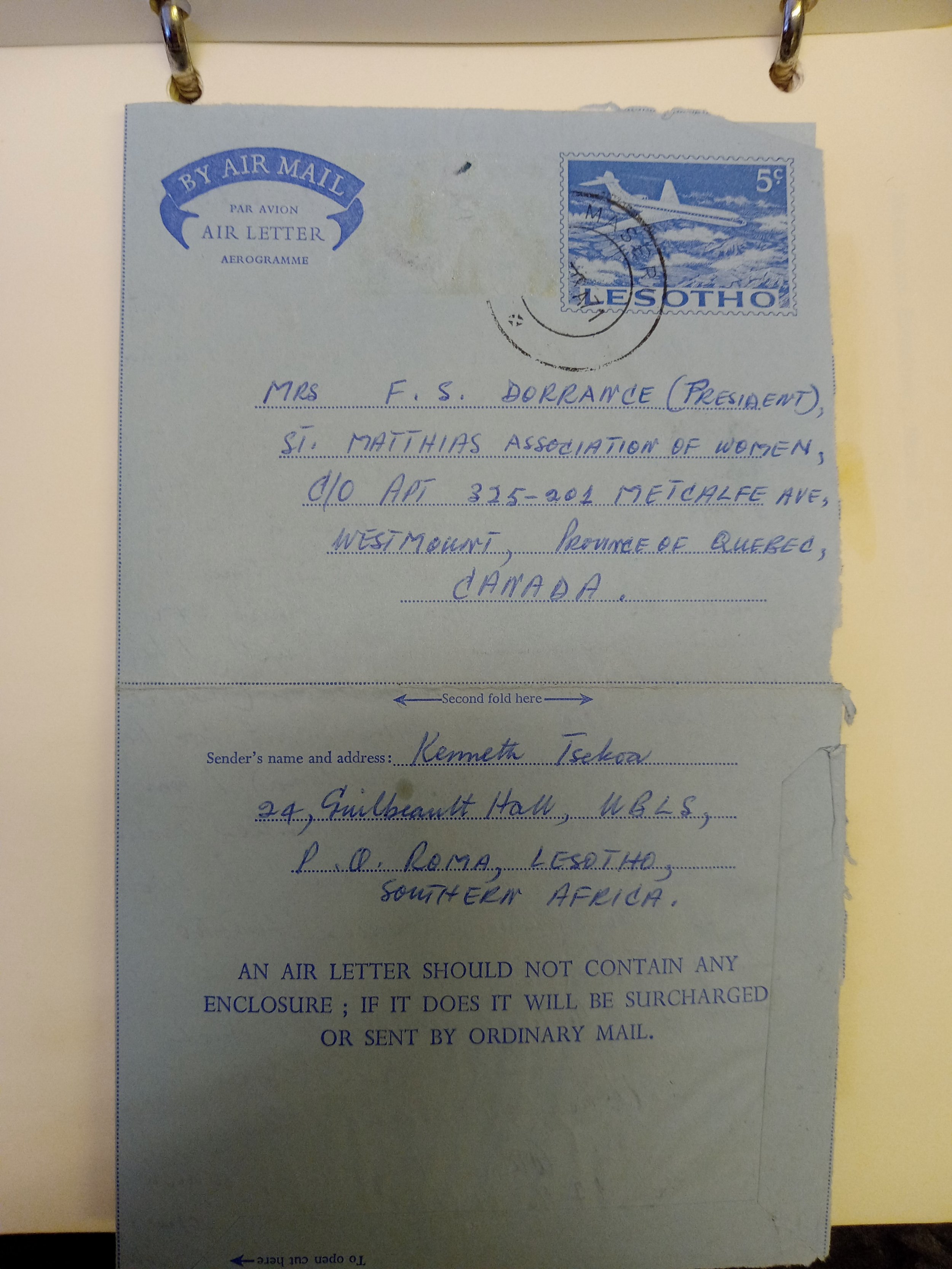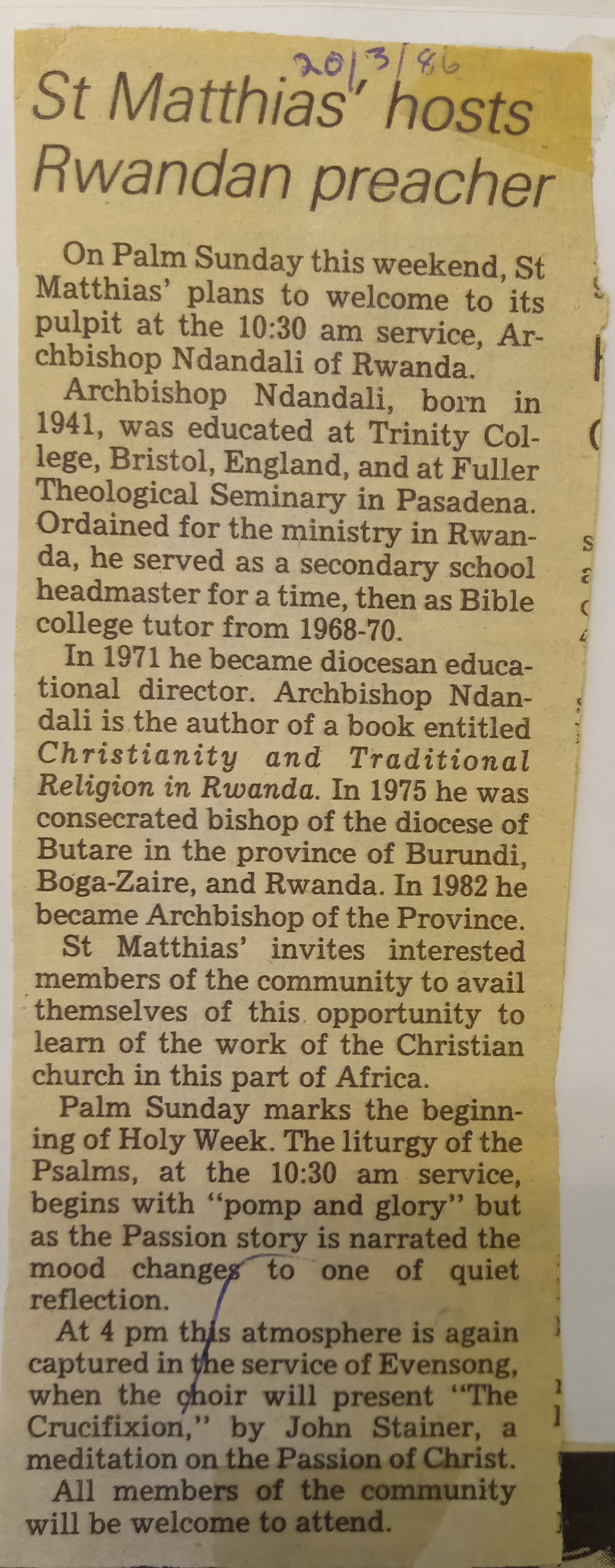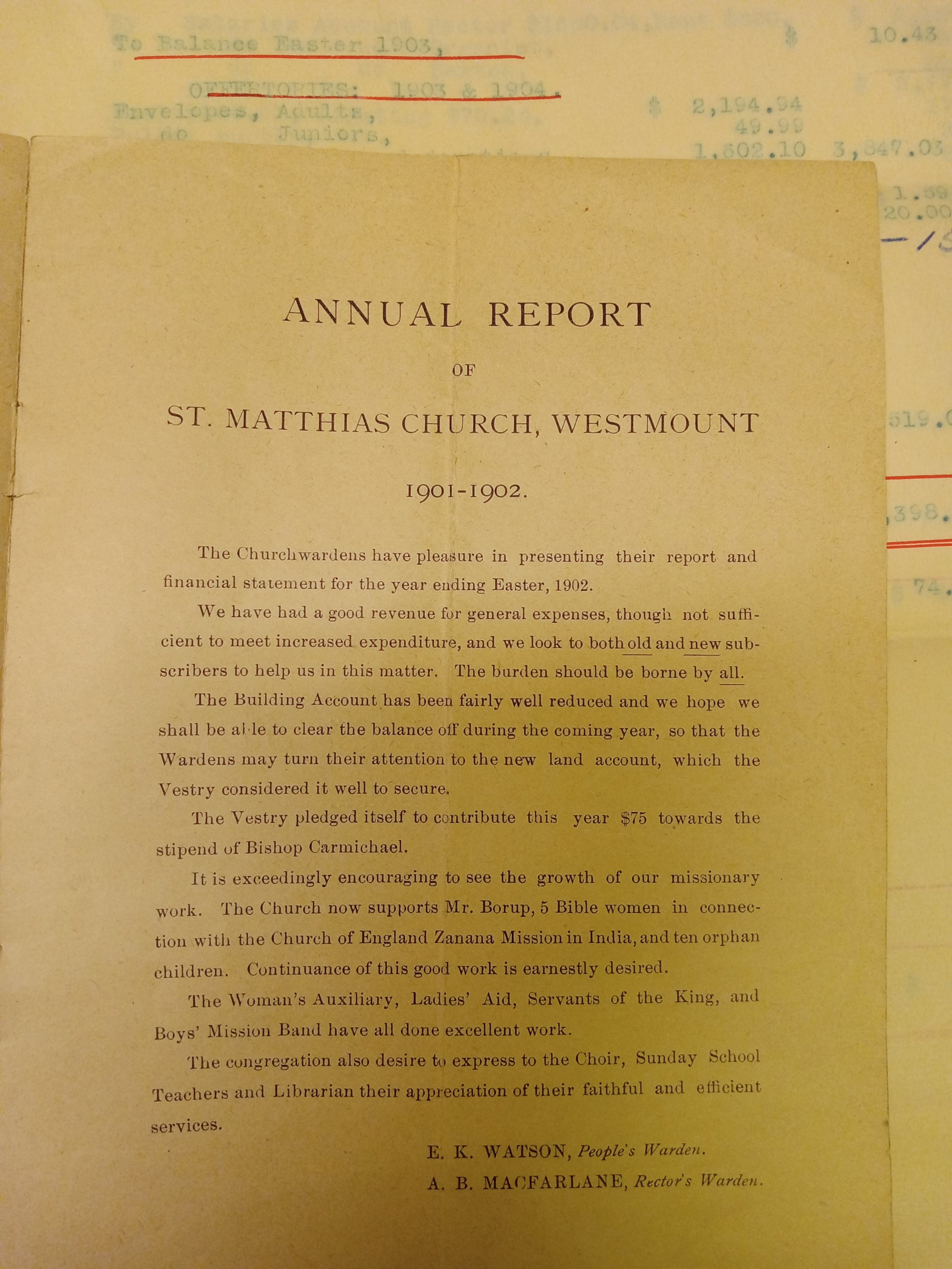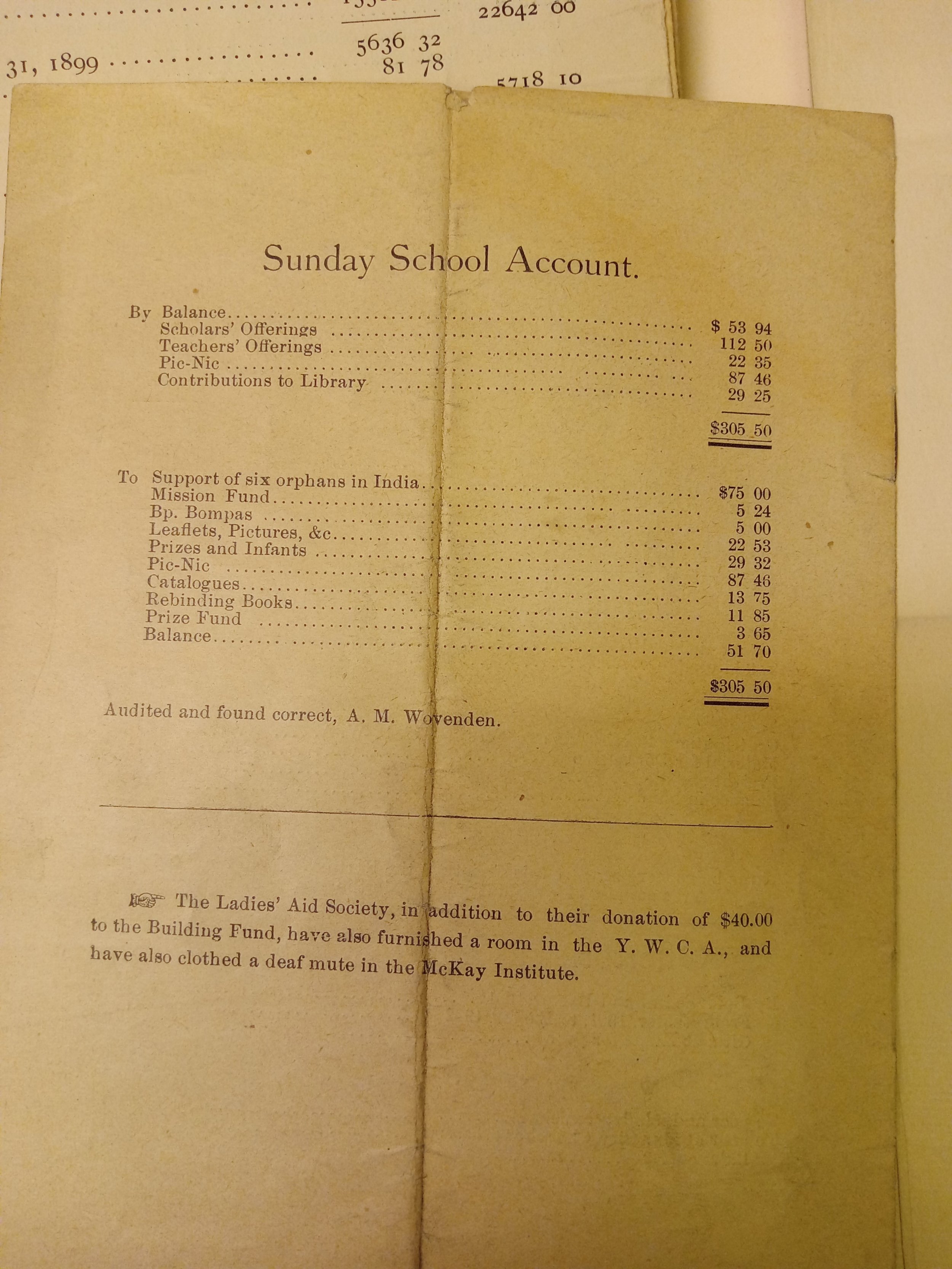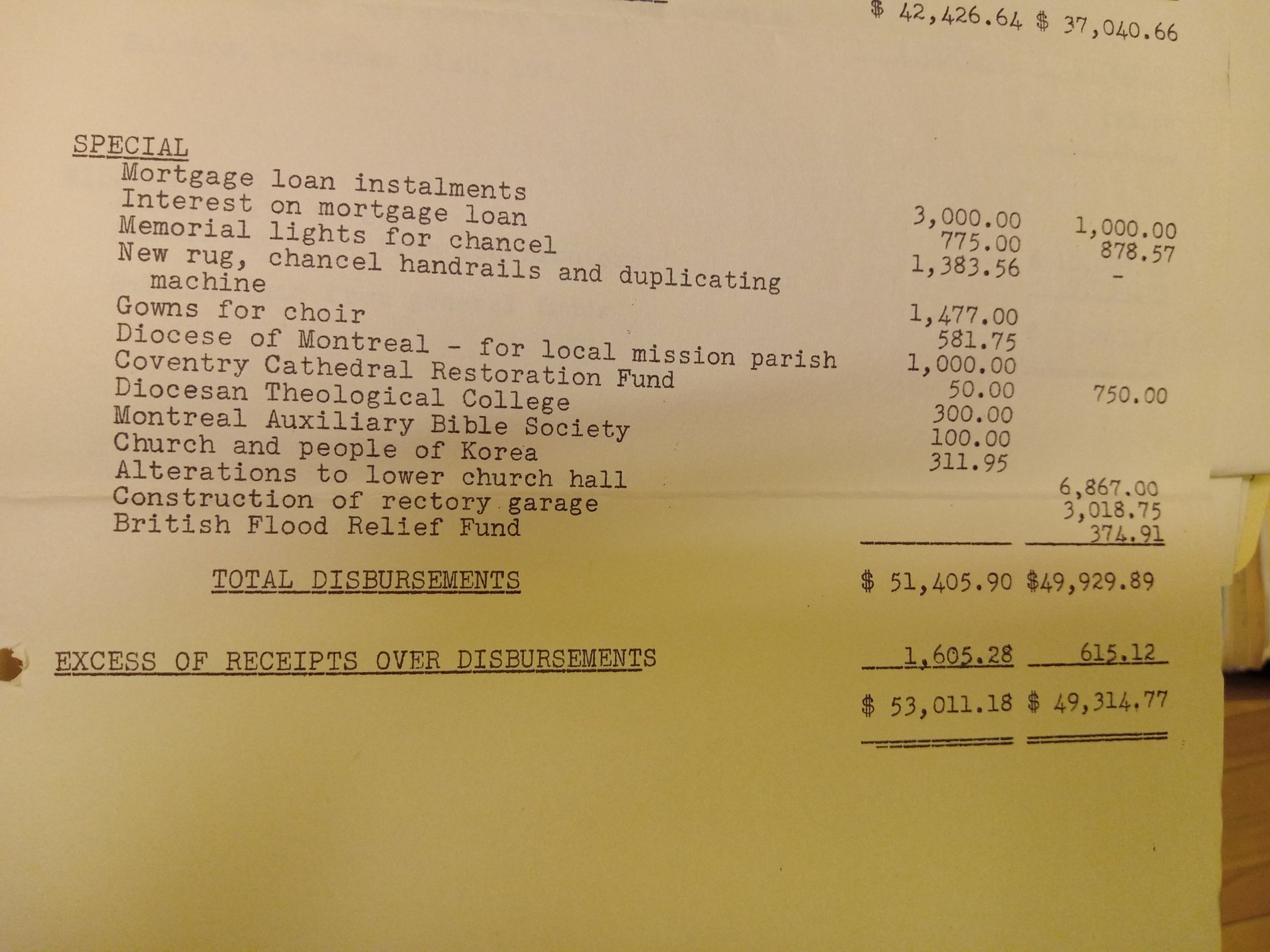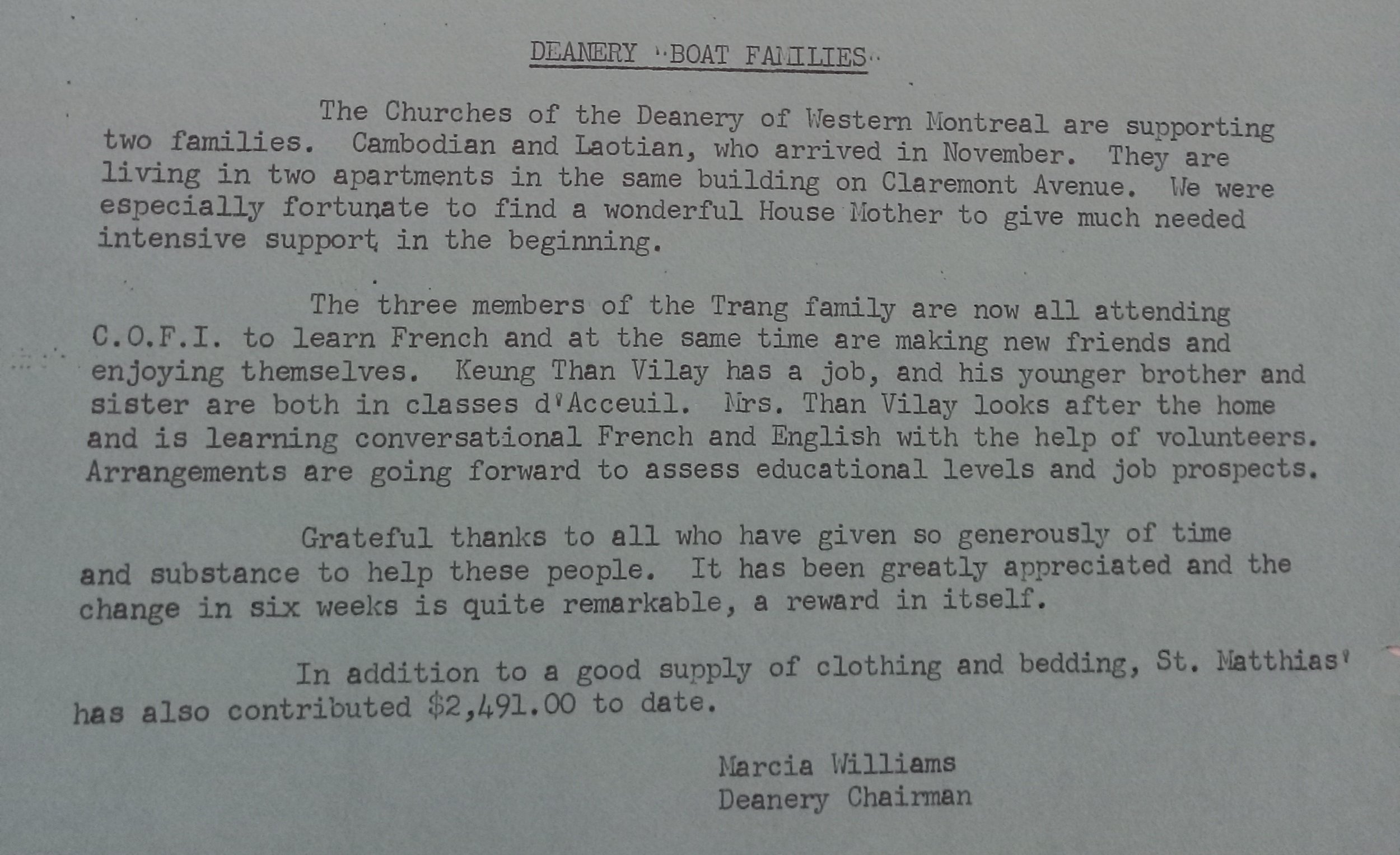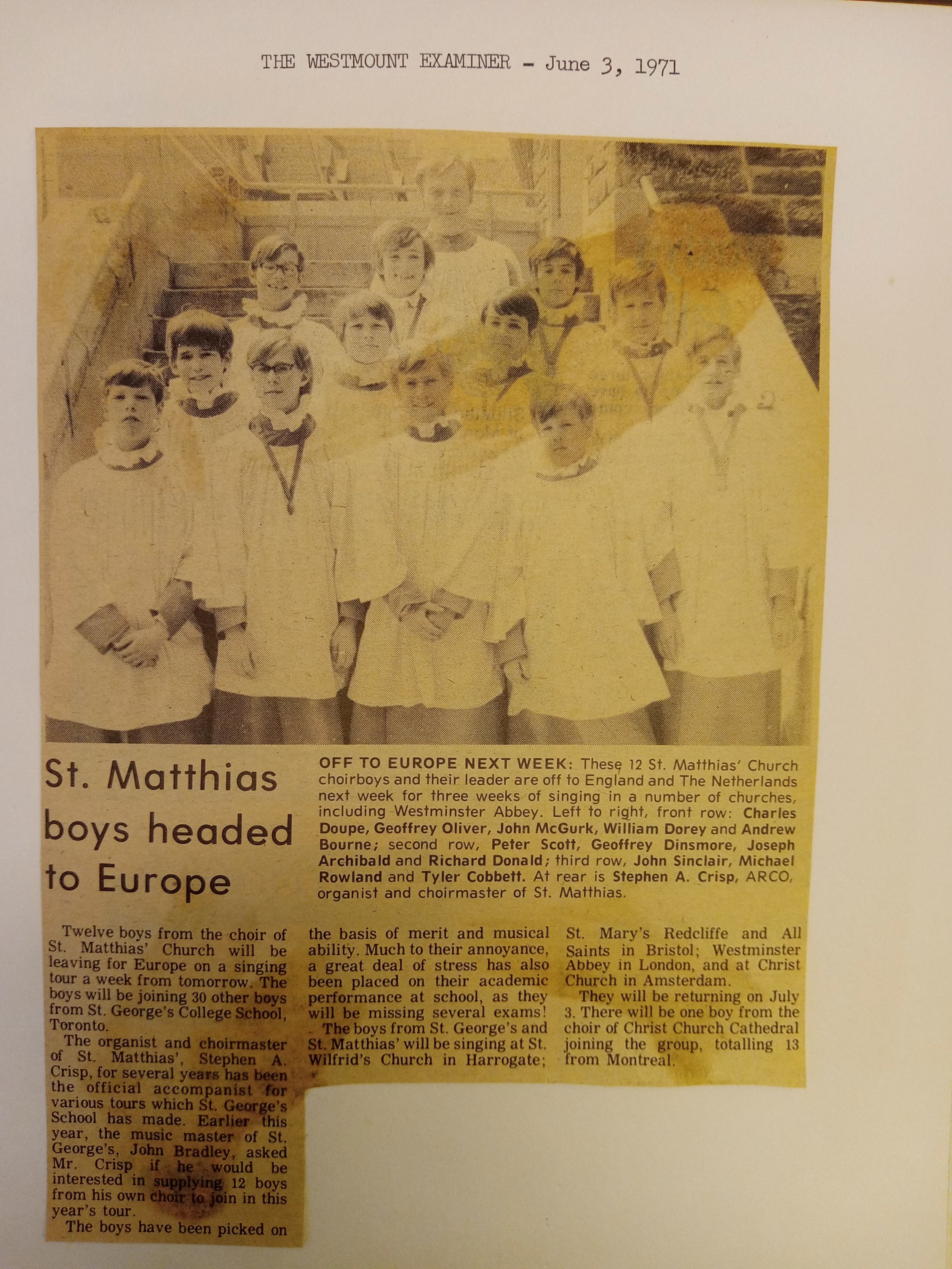December 3rd: Global Church Connections
St. Matthias’ was officially founded as a mission of St. George’s, Place du Canada, in 1873, which means our community is 150 this year! For the next 12 months, we’ll be diving into the archives to shine the spotlight on particularly interesting parts of our history.
A photo of and anecdote about a font in a Ugandan cathedral – apparently donated by St. Matthias’, without our having any of our own records of it!
Although many things in our archives are, as you know by now, quite well-documented, our connections with the wider Anglican Church are not. Our archives offer only glimpses, glimmers of relationship, without any of the supporting documents that might let us in on the full story. Some records, like this story about a priest from the Diocese who encountered a baptismal font donated by our church to Namirembe Cathedral in Uganda’s capital city, Kampala, suggest that even more of these stories have been lost to time. But what we do have paints a very bright overall picture.
In the wake of their trip to Namirembe Cathedral in 1987, Rev. Ian and Sylvia Stuchberry came to present photos and stories at a St. Matthias’ coffee hour after a service where Rev. Stuchberry preached. The Education Committee, who had brought them in, donated a bicycle to a rural Ugandan priest in response. From at least 1975, Uganda was one of four African countries in which Anglican churches were supported by the Diocese of Montreal, and Matthians were very aware of the connection. But Uganda is not the only African country with whom St. Matthias’ has had connections. Easter 1989 saw Matthians sending greetings to the Diocese of Capetown, then a major player in the fight against apartheid in South Africa. Archbishop Desmond Tutu’s office sent a thank-you note that is preserved in our archives with some of our most precious documents. In 1971, the Association of Women supported an education student in his final year of study; Kenneth Tsekoa’s letter of thanks, and the enclosed photo of himself and his wife, is also among the most carefully curated parts of the archive. And, on Palm Sunday 1986, Archbishop Ndandali of Burundi, Rwanda, and Boga-Zaire, came to preach at St. Matthias’ main service.
Before Uganda, South Africa, Lesotho, and Rwanda, Matthians from the Sunday School on up were supporters of the Church in India. As early as 1901, the Church of England Zenana Missionary Society, which had been founded with the aim of converting Indian women to Christianity, had five of its members’ expenses paid by Matthians, who also supported orphans and one male missionary, a Mr. Borup. The Sunday School’s account that same year made supporting orphans in India its second-biggest expenditure.
In the 1950s, Matthian support for Church work moved East, to Korea. In the year after the official end of the Korean War, with negotiations ongoing that would fail to result in a unified state, the money St. Matthias’ collected was a tangible way to demonstrate solidarity with a Church ministering in the aftermath. On the other side of war, St. Matthias’ helped support refugees fleeing the Cambodian genocide. The deanery report refers to them as “boat families,” a reference to the beginning five years earlier of Canada’s reception and resettlement of over 120,000 Vietnamese refugees, who became colloquially known as “boat people.”
Our giving to Global Anglicanism also touched England: whether the Association of Women’s 1979 150-person tea for the Archbishop of Canterbury, planned and hosted in less than 24 hours, contributions in 1954 to Coventry Cathedral’s restoration fund, or sending twelve members of our boys’ choir in 1971 to adorn, among other places, Westminster Abbey.
Taken together, this legacy of giving reveals something important: Matthians throughout our history have believed that the Church, wherever it finds itself, is a source of hope and help for its surrounding community. On the basis of that belief, we have offered moral and financial support to churches facing natural disasters, wars and genocides, apartheid, and, yes, even building issues. And it is also clear that we have believed strongly in education, or perhaps more accurately, about educators. Give, our logic has seemed to be, to those who can multiply the gift.

